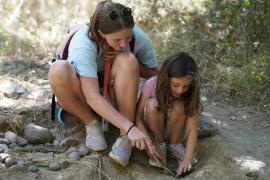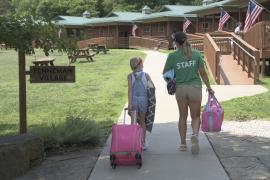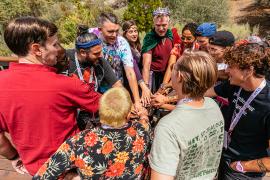Most camps hire college students to work as camp staff — primarily during the summer season, but on occasion throughout the year. When the employment situation is one where the student has no other obligations, the hiring and employment processes can be relatively smooth. However, camps sometimes run into situations where college students are constrained in their ability to work at camp because they are required to do an internship as part of their schooling.
Early this past summer, I conducted an informal survey of universities that offer a program in parks and recreation (or something similar) to learn about their internship requirements and how they might fit into a summer camp setting. The results were varied. First, it is important to note that many parks and recreation programs are nationally accredited, and those that are have to meet accreditation standards related to internships. The accreditation requirement for an internship is a minimum of 10 weeks and a minimum of 400 hours of work (essentially, 40 hours per week — a full-time job). While camp settings include overnight responsibilities, the amount of time working at camp that is accepted is usually between eight and 10 hours a day.
Lengths of internships ranged from eight to 30 weeks; some were variable in time requirements depending upon the credit hours in which students were enrolled. The two largest response categories showed that 21 percent of the programs required a 10-week minimum internship and 29 percent indicated that the internship had to be at least 12 weeks in length (the other 50 percent ranged from eight to 16 weeks). This often does not match up with camp employment, which in many cases is limited to eight weeks in length. The good news is that 63 percent of university programs accept staff training as part of an internship experience and 53 percent count both camp set-up and camp breakdown as part of a camp-based internship experience. In addition to the length of the internship, the required number of hours for internships varied; 41 percent of schools reported requiring 400 hours and another 41 percent required a minimum of 480 total hours of work (the remaining 18 percent were quite varied and went up to 560 hours).
Internships are the typically the culmination of a student’s college preparation/degree and are situated in the field, thereby enabling students to transition from academic to professional life. Internship is typically the last academic course in which a student enrolls; thus, all universities require some type of academic work throughout the internship experience. Most required weekly reports in addition to other academic assignments and 68 percent of schools required a culminating project/report. That project was most often considered the final piece of academic expectations and was considered a significant endeavor. Because of the academic requirements for the internship, 71 percent of universities reported that access to the Internet was a necessity for student interns throughout the internship.
I asked university personnel under what circumstances they would accept working at a summer camp as a legitimate internship experience. Thirty-nine percent indicated that they would accept a student working in any position at camp as an appropriate internship site. Twenty-nine percent (as well as others who wrote in comments) accept students working at a camp as an internship as long as the student had some leadership or supervisory experience as part of their camp responsibilities (and the time period meets the weeks and hours minimum requirement). When asked what types of experiences university programs desire student interns be exposed to during the internship experience, more than three-quarters listed the following: programming, supervision, maintenance, marketing, planning, human resources, and general administration. More than two-thirds of programs also wished that their students be exposed to direct leadership and budgeting.
Based on this information (and remember, only schools that had programs in parks and recreation or related disciplines were contacted), it is easy to see some of the challenges that camps face in hiring college students who find themselves having to do an internship during the summer. Often, the length of time required for an internship exceeds that of a summer camp session. Further, interns are required to be exposed to a wide range of experiences that go beyond the job description of someone in a counselor position. It will be important, then, for camps that wish to hire students who are in internship to be able to offer a 10- to 12-week experience where interns can participate in (or at least be exposed to) experiences that may be outside of their actual employment position.
Photo courtesy of CYO Camp and Retreat Center in Occidental, California
Dr. Deb Jordan is a professor in the Department of Recreation and Leisure Studies program at East Carolina University. She is very involved with ACA and is co-chairing the Project Real Job effort helping camps discover ways to recruit, hire, and retain staff.
The views and opinions expressed by contributors are their own and do not necessarily reflect the views of the American Camp Association or ACA employees.




